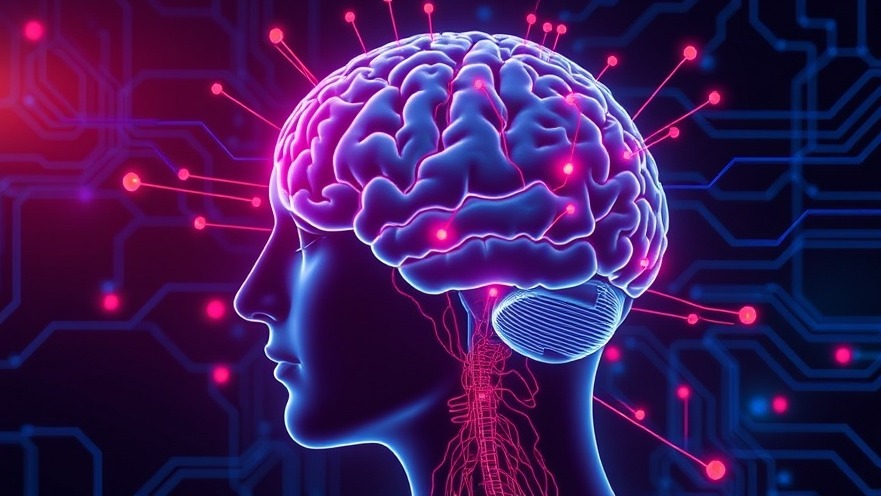
Understanding the Evolution of Brain Implants
The journey of brain implants has evolved dramatically since the late 20th century. Initial approaches, like lesioning, served as blunt instruments—more akin to trial and error than precise medicine. Surgeons set out to correct neurological conditions, frequently leading to variable outcomes. The turning point came in 1987 when Alim-Louis Benabid noticed that electrical stimulation could preemptively alleviate symptoms, laying the groundwork for what we now call deep brain stimulation (DBS). This method, utilizing implantable devices to send electrical signals to targeted brain areas, has been a cornerstone treatment for Parkinson's disease and other neurological disorders since its adoption in the early 2000s.
The Birth of Adaptive Deep Brain Stimulation
In an era where personalized medicine is increasingly prioritized, adaptive deep brain stimulation has emerged as a breakthrough. Recent regulatory approvals in the US and Europe herald a new chapter. This innovative approach uses sophisticated algorithms to analyze real-time brain wave activity, automatically adjusting stimulation intensity based on the patient’s current condition. For patients with Parkinson's, whose symptoms can oscillate widely, this means greater control over their health. The fine-tuning capability of adaptive stimulation not only enhances symptom relief but can also mitigate side effects from overly strong stimulation during periods of lesser need.
Why It Matters for Health Practitioners
As concierge health practitioners, staying updated with emerging technologies like adaptive deep brain stimulation is crucial for patient management. Understanding these advancements equips you to engage in meaningful conversations with patients and guide them in making informed choices about their treatment options. With Parkinson's symptoms closely linked to medication cycles, the ability to tailor treatment in real time solidifies the efficacy of care practices and may ultimately improve overall patient satisfaction and outcomes.
Challenges and Considerations Ahead
While adaptive deep brain stimulation heralds exciting possibilities, it also presents unique challenges. Not all patients will have access to this new technology immediately, and the costs associated with research and implementation may vary across healthcare systems. Additionally, these systems must be integrated seamlessly into existing healthcare frameworks, which could pose logistical hurdles and necessitate robust training for health providers.
Future Perspectives: A Technological Revolution in Neurology
Looking forward, the integration of advanced AI and machine learning in medical devices promises unprecedented personalization of patient care. Imagine a future where your devices not only respond to brain patterns but also learn and adapt to an individual's unique responses over time. Such advancements not only extend to Parkinson's but hold the potential to revolutionize treatment for various disorders, including epilepsy and depression.
Empowering Patients Through Knowledge
As practitioners, it is vital to communicate the potential benefits of adaptive deep brain stimulation to patients succinctly and persuasively. Empowering patients with knowledge about their treatment options fosters trust and encourages patient agency, which can lead to better adherence to treatment protocols. Be prepared to answer questions about the technology, its risks, and its rewards so that patients feel informed and confident in their healthcare journey.
Conclusion: The Path Forward
The evolution of brain implants marks a milestone in the pursuit of effective treatment for Parkinson's and related disorders. As adaptive deep brain stimulation becomes more integrated into practice, staying informed will allow healthcare professionals to harness the full potential of this technology and enhance the quality of life for their patients. Don't hesitate to explore these advancements further and consider how they can be tailored to fit within your practice model.
 Add Row
Add Row  Add
Add 




Write A Comment